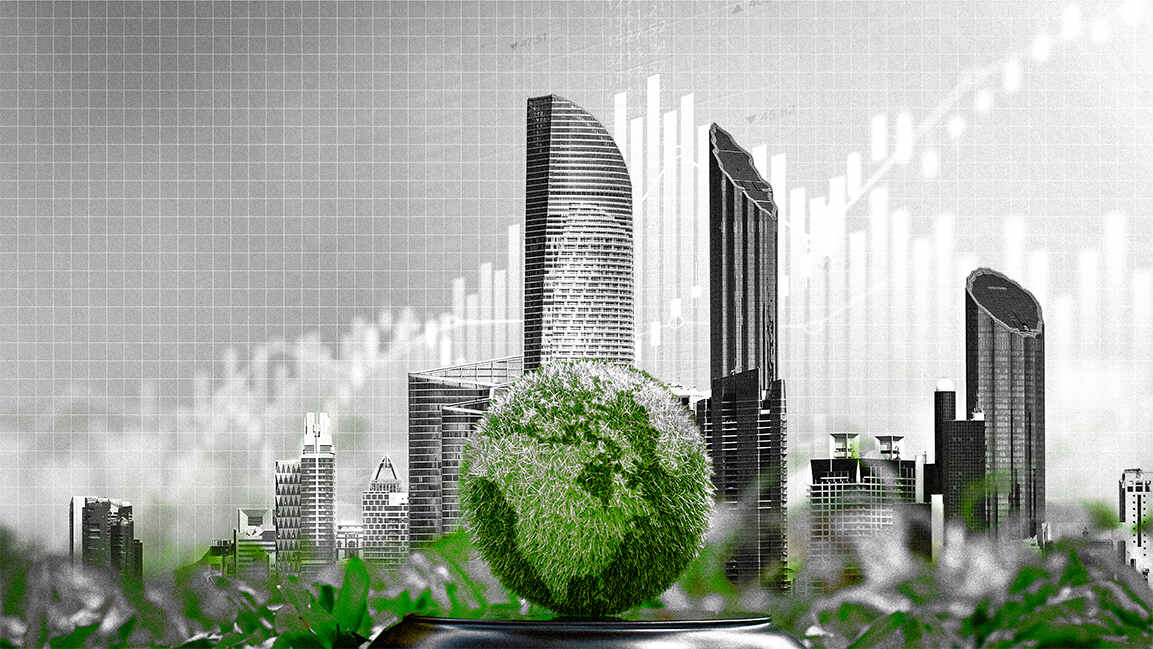- | 9:00 am
Experts at Green Goals Summit highlight the need for Innovation and investment for net zero by 2050
At the Green Goals Summit, experts emphasized the need for regulations and business-friendly policies for incorporating sustainability

The path toward a net-zero carbon economy by 2050 requires a strong focus on innovation, investment, and business sustainability. At the recent Green Goals Summit, experts highlighted the need for supportive regulations and business-friendly policies to integrate sustainable practices to level up the region and shift to a low-carbon footing.
A real plan to level up would be one that invested in the green jobs of the future, with ambitious policies to transform buildings, local transport, and energy supply and build a sustainable infrastructure that would reduce energy consumption, cut emissions, and help guard against the worst impacts of the climate crisis.
Undoubtedly, a green economy is crucial to building a sustainable future for the plant. But while the transition to a decarbonized economy is gaining momentum, with many companies recognizing sustainability as a significant business opportunity, there are challenges in incorporating sustainability, including infrastructure and regulations. Experts also urge innovation and research to achieve net-zero goals.
SUSTAINABILITY AT THE HEART OF BUSINESSES
Net zero requires a complete transformation, and the importance for businesses to embrace sustainability to make them more viable for the future can’t be emphasized enough. In the Middle East, particularly in the UAE, momentum around the shift to a decarbonized economy is building.
“The biggest companies in the UAE have already started looking into sustainability not just because it is the right thing to do, but also because it is a true business opportunity,” says Shargiil Bashir, EVP & Chief Sustainability Officer, First Abu Dhabi Bank.
With concern for the environment noticeably rising worldwide, Bashir added that people are now willing to pay higher prices for sustainable products and services, making a conscious effort.
WATCH THE VIDEO HERE
“Businesses need to understand that if they want to be successful, they have to have sustainability at its heart,” he adds. “From clients to investors and employees, all want to know what kind of sustainability plans the businesses have. Investors are also funding such businesses.”
While it is true that more businesses are deploying sustainability mechanisms, it is important to facilitate this with regulations and business-friendly policies.
“Regulation in the energy transition, road to net zero is fundamental, primarily to remove barriers. Some stakeholders have a clear business case, they have investors, and we need to allow them. We need to allow participation and build financing mechanisms for those with a clear business idea but no investors,” says Andrea Di Gregorio, Executive Director, Energy Efficiency and Renewables (Reem) Office, Ras Al Khaimah Municipality.
SUSTAINABILITY CHALLENGES IN REAL ESTATE
With real estate responsible for almost 40% of global carbon emissions, Salwa Al Maflahi, Group Director of Sustainability and Social Responsibility of Aldar Properties, and Eva Ramos Perez-Torreblanca, Director Environmental Policy Analysis & Economics, Environment Agency, Abu Dhabi, threw light on the challenges in incorporating sustainability in the sector that lacks regulations.
Governments across the region need to consider the long-term benefits of projects instead of just the upfront costs and incentivize more sustainable investments in the sector.
“If you consider the energy or water consumption and the environmental performance of buildings, they are also linked to reduced bills. So maybe we can start looking at the whole life of the investment. This could be a way for new buildings to incentivize a more ambitious building code,” says Perez-Torreblanca.
Maflahi added that Aldar has created a net zero plan that considers the full life cycle of the asset from design and low carbon supply chain to green construction.
Gregorio noted that to assess the long-term benefits of the projects, it is important to ensure that the governments have the right tools. He underscored the importance of moving beyond the government and ensuring a larger pool of investors invest in energy efficiency, renewable energy, and climate action.
“Governments need to think about mechanisms and instruments that facilitate access and increase participation of investors, reduce risk perception, and they need to lower interest rates and facilitate transactions,” he says.
Emphasizing the importance of involving stakeholders in the process, Maflahi says that the tenants in buildings are key stakeholders in the decarbonization pathway, and involving them in creating solutions is pertinent.
INNOVATION AND RESEARCH
The road to net zero needs investment in sustainable solutions and research and development.
“There may be some companies unable to invest in sustainability, but they can work on other aspects that do not require heavy capital investments, like energy efficiency and raising awareness in the organization,” says Bashir.
He adds that companies needed to create solutions that align with their business models to be sustainable in the long run, emphasizing the need for innovation to stay “on track” for being carbon-neutral by 2050.
“The solutions we have today will not get us to the ambitions of net zero by 2050, so much innovation is required. There can be multiple solutions, like carbon capture, natural offsetting, and hydrogen fuel. But we need to look into them seriously,” he adds.







































